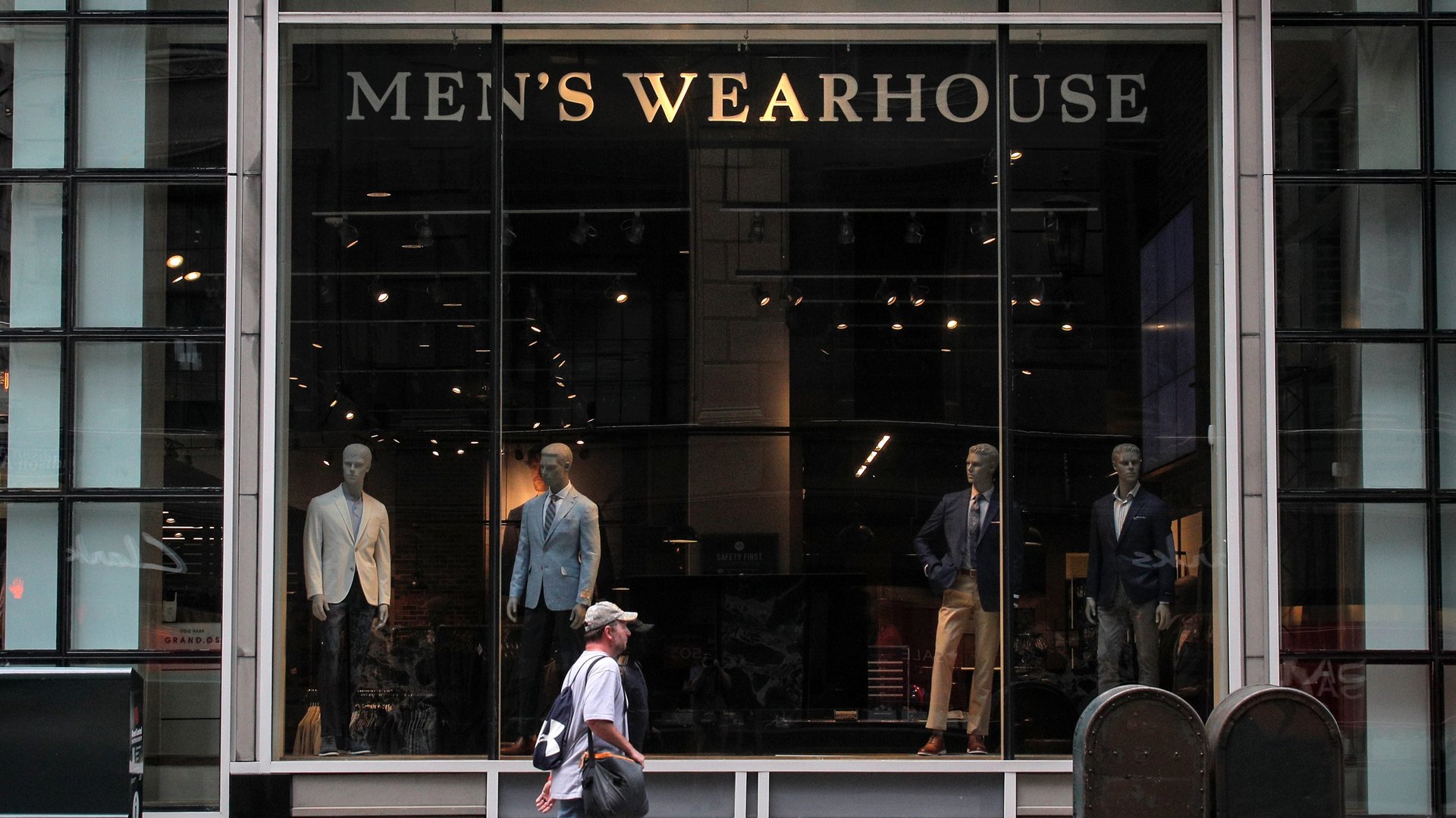Can men’s suits survive Covid-19?
The men’s suit business has been in decline for years in the US, thanks to the century-long trend of clothes getting more casual and even the most conservative office places loosening up dress codes.


The men’s suit business has been in decline for years in the US, thanks to the century-long trend of clothes getting more casual and even the most conservative office places loosening up dress codes.
But during the Covid-19 pandemic, having a substantial business in suits has become an outright liability.
On Aug. 2, Tailored Brands filed for bankruptcy. The company is the owner of labels including Men’s Wearhouse and JoS. A. Bank, both of which are prominent peddlers of men’s suits in the US and together accounted for some 83% of Tailored Brands’s sales last year. Roughly a month earlier, Brooks Brothers, the most storied suit maker in the US and outfitter of numerous presidents, claimed bankruptcy protection itself. J.Crew, which once did a healthy trade in men’s suits, recently filed for bankruptcy too, as have Neiman Marcus and Lord & Taylor, which as department stores have also been common places for men to look for suits.
Euromonitor International, a market research provider, forecasts that US retail sales of men’s suits will plunge about 24% this year, falling to approximately $1.5 billion. Just five years ago, sales were $2.1 billion, but they’ve dropped steadily, even though worldwide sales of suits have managed to inch upward, helped along by growing appetites for clothes in countries such as China.
While some smaller upstarts selling custom suits have managed to establish footholds in the US, mass-market suit sellers have had little choice but to change up their offerings. “We have all known for some time now that traditional suits have been giving way to more casual workplace attire trends,” Dinesh Lathi, then-executive chairman of Tailored Brands and current CEO, said during a March 2019 call with investors. “We believe that if we are to deliver sustainable and profitable long-term growth, we will have to deliver a business casual assortment that is as compelling as our suiting assortments have historically been.”
Tailored Brands now plans to lean even more heavily into casual clothes, though it still faces major obstacles. Right now demand for anything more formal than workout clothes is diminished. TAL Group, the giant Hong Kong-based supplier of dress shirts to companies such as Brooks Brothers and Charles Tyrwhitt, told Bloomberg it expects its business from April through December to be down 50%. Items such as dress shoes aren’t selling either. Ralph Lauren, which sells a lot of clothing for dressier occasions, said today its sales had plummeted 66% in its recent quarter compared to last year.
For the moment, many of those occasions are on pause, or taking place online. With office attire already abandoning formality and countless office employees unlikely to return to their workplaces for some time, there’s even less reason to put on a suit. Suits won’t disappear anytime soon (paywall), but some businesses that rely on them might if they don’t find ways to stay relevant.